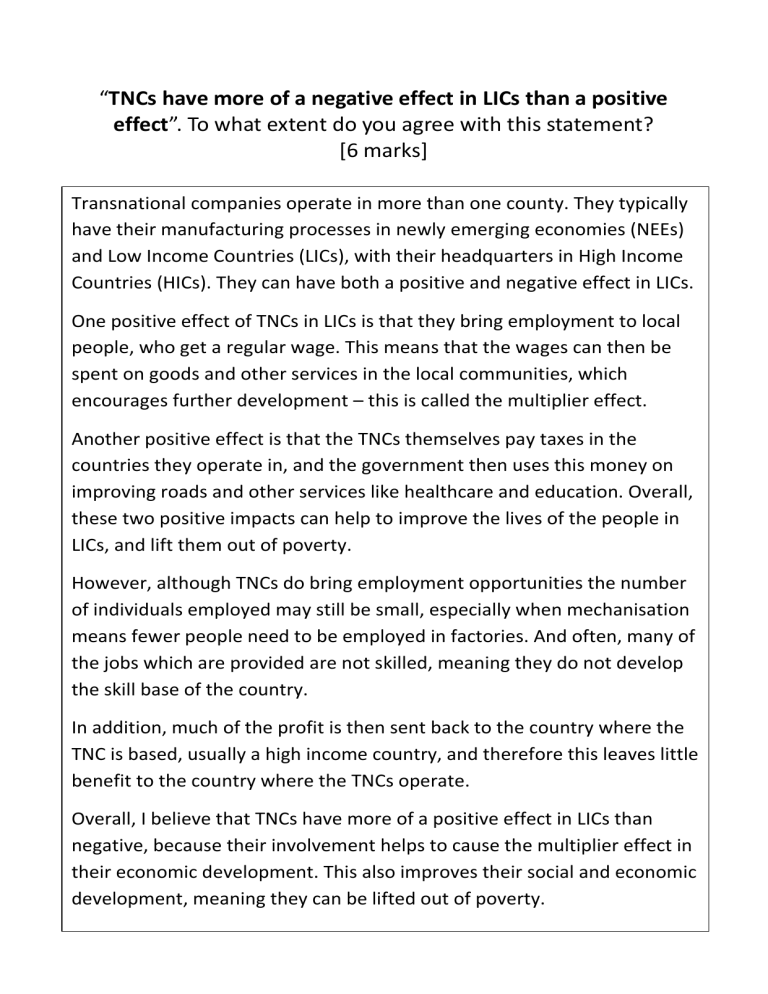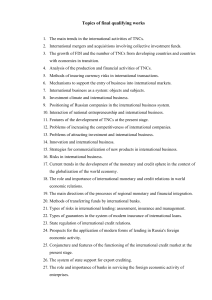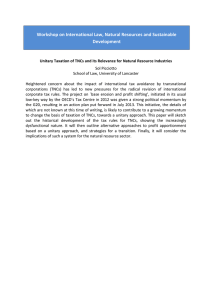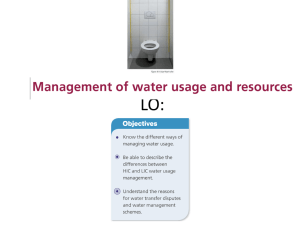
“TNCs have more of a negative effect in LICs than a positive effect”. To what extent do you agree with this statement? [6 marks] Transnational companies operate in more than one county. They typically have their manufacturing processes in newly emerging economies (NEEs) and Low Income Countries (LICs), with their headquarters in High Income Countries (HICs). They can have both a positive and negative effect in LICs. One positive effect of TNCs in LICs is that they bring employment to local people, who get a regular wage. This means that the wages can then be spent on goods and other services in the local communities, which encourages further development – this is called the multiplier effect. Another positive effect is that the TNCs themselves pay taxes in the countries they operate in, and the government then uses this money on improving roads and other services like healthcare and education. Overall, these two positive impacts can help to improve the lives of the people in LICs, and lift them out of poverty. However, although TNCs do bring employment opportunities the number of individuals employed may still be small, especially when mechanisation means fewer people need to be employed in factories. And often, many of the jobs which are provided are not skilled, meaning they do not develop the skill base of the country. In addition, much of the profit is then sent back to the country where the TNC is based, usually a high income country, and therefore this leaves little benefit to the country where the TNCs operate. Overall, I believe that TNCs have more of a positive effect in LICs than negative, because their involvement helps to cause the multiplier effect in their economic development. This also improves their social and economic development, meaning they can be lifted out of poverty. “TNCs have more of a negative effect in LICs than a positive effect”. To what extent do you agree with this statement? [6 marks] Transnational companies operate in more than one county. They typically have their manufacturing processes in newly emerging economies (NEEs) and Low Income Countries (LICs), with their headquarters in High Income Countries (HICs). They can have both a positive and negative effect in LICs. One positive effect of TNCs in LICs is that they bring employment to local people, who get a regular wage. This means that the wages can then be spent on goods and other services in the local communities, which encourages further development – this is called the multiplier effect. Another positive effect is that the TNCs themselves pay taxes in the countries they operate in, and the government then uses this money on improving roads and other services like healthcare and education. Overall, these two positive impacts can help to improve the lives of the people in LICs, and lift them out of poverty. However, although TNCs do bring employment opportunities the number of individuals employed may still be small, especially when mechanisation means fewer people need to be employed in factories. And often, many of the jobs which are provided are not skilled, meaning they do not develop the skill base of the country. In addition, much of the profit is then sent back to the country where the TNC is based, usually a high income country, and therefore this leaves little benefit to the country where the TNCs operate. Overall, I believe that TNCs have more of a positive effect in LICs than negative, because their involvement helps to cause the multiplier effect in their economic development. This also improves their social and economic development, meaning they can be lifted out of poverty.





